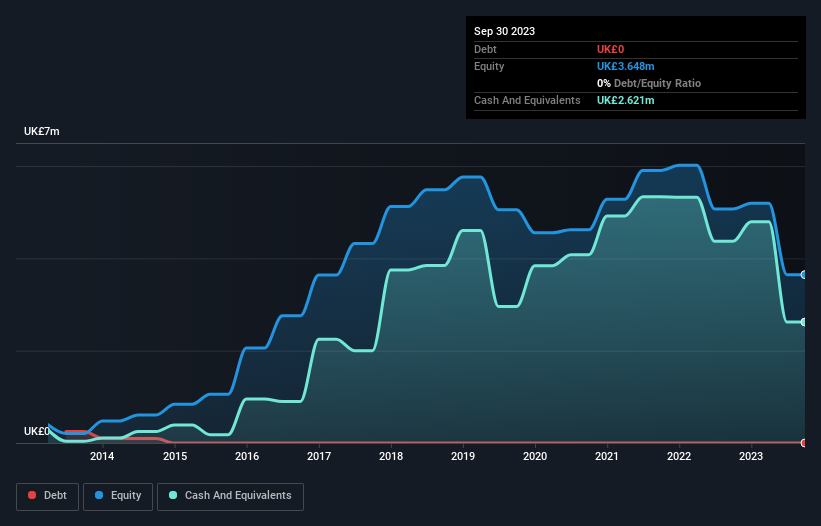Here's Why We're Not At All Concerned With Triad Group's (LON:TRD) Cash Burn Situation
Even when a business is losing money, it's possible for shareholders to make money if they buy a good business at the right price. For example, although software-as-a-service business Salesforce.com lost money for years while it grew recurring revenue, if you held shares since 2005, you'd have done very well indeed. But while the successes are well known, investors should not ignore the very many unprofitable companies that simply burn through all their cash and collapse.
So, the natural question for Triad Group (LON:TRD) shareholders is whether they should be concerned by its rate of cash burn. For the purposes of this article, cash burn is the annual rate at which an unprofitable company spends cash to fund its growth; its negative free cash flow. First, we'll determine its cash runway by comparing its cash burn with its cash reserves.
Check out our latest analysis for Triad Group
When Might Triad Group Run Out Of Money?
A company's cash runway is calculated by dividing its cash hoard by its cash burn. When Triad Group last reported its balance sheet in September 2023, it had zero debt and cash worth UK£2.6m. Importantly, its cash burn was UK£544k over the trailing twelve months. So it had a cash runway of about 4.8 years from September 2023. A runway of this length affords the company the time and space it needs to develop the business. Depicted below, you can see how its cash holdings have changed over time.

Is Triad Group's Revenue Growing?
We're hesitant to extrapolate on the recent trend to assess its cash burn, because Triad Group actually had positive free cash flow last year, so operating revenue growth is probably our best bet to measure, right now. Regrettably, the company's operating revenue moved in the wrong direction over the last twelve months, declining by 9.2%. In reality, this article only makes a short study of the company's growth data. This graph of historic earnings and revenue shows how Triad Group is building its business over time.
How Hard Would It Be For Triad Group To Raise More Cash For Growth?
Given its problematic fall in revenue, Triad Group shareholders should consider how the company could fund its growth, if it turns out it needs more cash. Companies can raise capital through either debt or equity. One of the main advantages held by publicly listed companies is that they can sell shares to investors to raise cash and fund growth. By comparing a company's annual cash burn to its total market capitalisation, we can estimate roughly how many shares it would have to issue in order to run the company for another year (at the same burn rate).
Since it has a market capitalisation of UK£27m, Triad Group's UK£544k in cash burn equates to about 2.0% of its market value. That means it could easily issue a few shares to fund more growth, and might well be in a position to borrow cheaply.
Is Triad Group's Cash Burn A Worry?
It may already be apparent to you that we're relatively comfortable with the way Triad Group is burning through its cash. For example, we think its cash runway suggests that the company is on a good path. While its falling revenue wasn't great, the other factors mentioned in this article more than make up for weakness on that measure. After taking into account the various metrics mentioned in this report, we're pretty comfortable with how the company is spending its cash, as it seems on track to meet its needs over the medium term. On another note, Triad Group has 3 warning signs (and 2 which are concerning) we think you should know about.
Of course Triad Group may not be the best stock to buy. So you may wish to see this free collection of companies boasting high return on equity, or this list of stocks that insiders are buying.
Have feedback on this article? Concerned about the content? Get in touch with us directly. Alternatively, email editorial-team (at) simplywallst.com.
This article by Simply Wall St is general in nature. We provide commentary based on historical data and analyst forecasts only using an unbiased methodology and our articles are not intended to be financial advice. It does not constitute a recommendation to buy or sell any stock, and does not take account of your objectives, or your financial situation. We aim to bring you long-term focused analysis driven by fundamental data. Note that our analysis may not factor in the latest price-sensitive company announcements or qualitative material. Simply Wall St has no position in any stocks mentioned.
